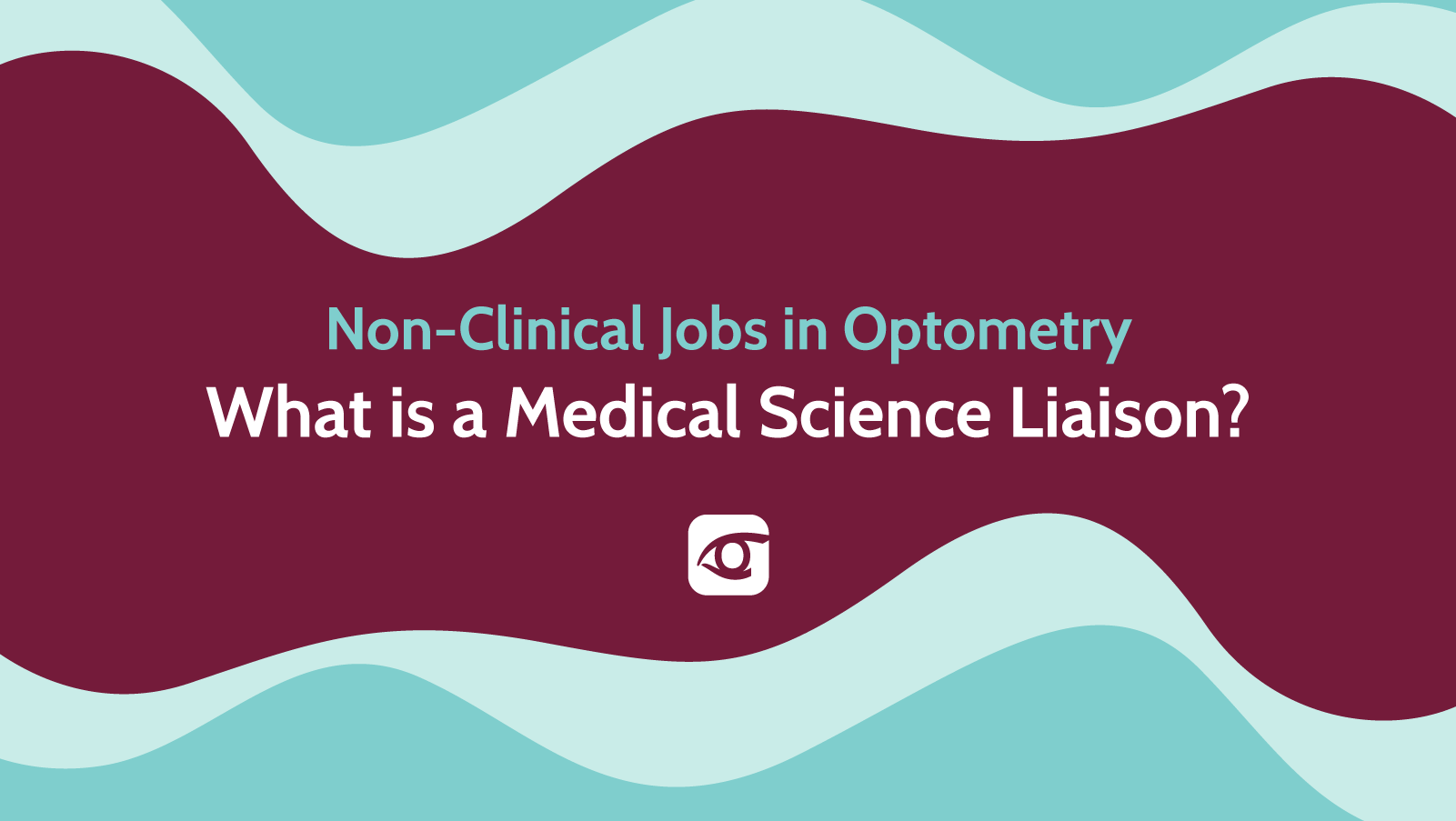
 Have you ever thought about what else you can do with an optometry degree? Though there are many options in clinical care, there may be a number of reasons you would like to branch out. Whether you’re waiting on board exam results and looking for a job, or in limbo for your state license, a job as a Medical Science Liaison may be right for you.
Have you ever thought about what else you can do with an optometry degree? Though there are many options in clinical care, there may be a number of reasons you would like to branch out. Whether you’re waiting on board exam results and looking for a job, or in limbo for your state license, a job as a Medical Science Liaison may be right for you.
So what is a Medical Science Liaison (MSL) and what do they do?
Large pharmaceutical and bioengineering companies have different sets of representatives. An MSL within a pharmaceutical company is usually someone with a doctorate degree (think OD, MD, DO, DPM, DDS, PharmD). The MSL is not just a representative, but an individual who has the expertise and knowledge in the related field to address questions, guide research, and provide training and clinical experience to clients as well as individuals within the organization.
Here’s an example.
A large biotechnology company decides to engineer a device used by optometrists and ophthalmologists to diagnose certain eye conditions. They bring in various MSLs in order to guide them through the process, discuss clinical relevance and ease, and provide feedback. Once the product is launched and available, MSLs provide clinical guidance to the clinicians (usually other doctors) using the product. They provide clinical pearls and answer high-level questions that would possibly be beyond the scope of a representative of the company that is not an MSL.
The back end is where things get tricky.
Though it seems like a lot of fun, there are a lot of requirements that need to be met for certain MSL positions. Most positions prefer experience in clinical care, though not all. You also need to have a relevant background and a clinical degree. For example, a pharmaceutical company involved in producing a cardiovascular drug may not need the expertise of an optometrist, unless the drug has some direct clinical relevance to the eye. Another common characteristic of MSL jobs is that most of them require lots and lots of travel. Some travel may be regional, but others require lots of interstate travel and/or travel to headquarters periodically if the MSL is working in the field. MSLs usually show up at offices that use their represented products. Their purpose is to be around to answer questions and guide clinicians. This is done best in person rather than remotely.
If you like to travel, interaction with people, and clinical research, a job as a Medical Science Liaison may be right for you. If you’re curious, look up the position on your favorite job posting websites. Make sure to use keywords like “optometrist” or “OD” to refine your search. Good luck!
~ Dr. Amadian
